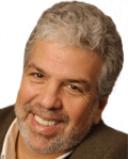
Personality
Graduation Season: What's Next?
Dear Graduate: Your success is already within you.
Posted June 1, 2010

The graduation season is upon us - complete with commencement addresses that celebrate this developmental milestone on the pathway of formal education. Having been a child who played well on my own, I have written this imaginary address that is one I'd love to have heard myself when I was graduating.
Many college graduates are now being released from a world of structured directives into the sprawling world of possibilities and choices. What's a graduate to do?
Before I answer this question, I'd like first to offer a perspective for those graduating summa cum laude and the students riding the caboose at the rear of their class. The school environment is one structured to reward mostly those people who have high verbal skills, especially with regards to reading and writing. If you love learning, have excellent mental skills for that learning, and acquire strategic study skills, you can excel in the school environment. And the message sent out to all is that those who excel in school are the most likely to excel in life. That's not true. We all have good chances of developing excellent lives for ourselves.
According to the VIA Classification of Character Strengths, there are 24 positive personality traits that we all have in varying degrees. And each of us has a subset of "signature strengths" that define our essence of being - who we are at our core. Those positive personality traits that characterize us best are distributed along two dimensions - the self-other continuum and the mind-heart continuum. Some of us are essentially situated in the realm of seeking and playing with knowledge - we love "being in our head"... learning, solving, and creating. Others of us tend have signature strengths that move us into relationship with others and we tend to be most comfortable in the realm of feelings and passions. And, there are those whose top strengths tend to be more even blends of these two orientations. There are many roads to life satisfaction other than the book-learning route that schools reinforce.
For those students who received the message from their school experience that you are nothing special, you must consider the source and disregard the message completely. There is nothing average or below average about the life you can construct for yourself.
That being said I can now answer the question of what's a graduate to do, with the following three questions. First, seek an answer to the question, "What do I like?" Are you interested in nature, history, literature, sports, combustion engines, fashion, architecture, helping people, etc.? Some interests you have already developed and some are yet to be discovered. Explore freely without worry of practicality. There are many ways to practice one's interests vocationally and avocationally.
Second, seek an answer to the question, "What am I good at?" We all have a variety of abilities and we have spent a lot of time developing some of those abilities and little to no time developing others. Emblazoned in my memory is the discovery by my hair cutter at the tender age of 50 that he could paint really well. He had lived his first 50 years with no idea that he had this ability! Are you mechanically inclined, do you have a good eye for detail, do you have good eye-hand coordination, do you learn well from reading, do you have musical ability? Human beings have so many capabilities. Develop the abilities you have and explore those that you may not yet have discovered. Don't worry about failure. It is a natural part of weeding through possibilities. And, don't linger in failure either. Just move on in directions where you feel capable and grow, grow, grow.
Finally, answer the question, "Who am I?" Without this answer you may capably do things of interest that ultimately leave you feeling empty and as if you missed the mark. I remember well a successful corporate attorney I counseled who at the age of 50 realized his success felt meaningless. Though he was smart and interested in law, working on corporate mergers ultimately left him feeling hollow and thinking that he had squandered his life in work that didn't connect with his most cherished values and character traits. The VIA Survey offers everyone a chance to quickly, and for free, hone in on those positive personality traits that most define their essence-of-being. Identify your top character strengths and give them rich expression.
With partial answers to these three questions in hand, then just connect the dots. Seek activities in life that align with who you are, what you are good at, and what interests you. Like your spine, these three "psychological vertebrae" result in pain when they are misaligned. Since our lives are dynamic, these pieces are constantly in motion, so aligning them is an ongoing process. Work at it comfortably. Don't force-fit anything. You will be aware of good alignment by the positive energy you feel. And, alternatively, you can be aware of misalignment by feelings of fatigue and boredom.
Unlike in school, don't seek to have all the answers now. Life is not a test you cram for. Appreciate the gift of time and use it to explore. Each discovery moves you forward. There is nowhere to rush to. Take your time and, as the famous philosopher Joseph Campbell said, "Follow your bliss."

